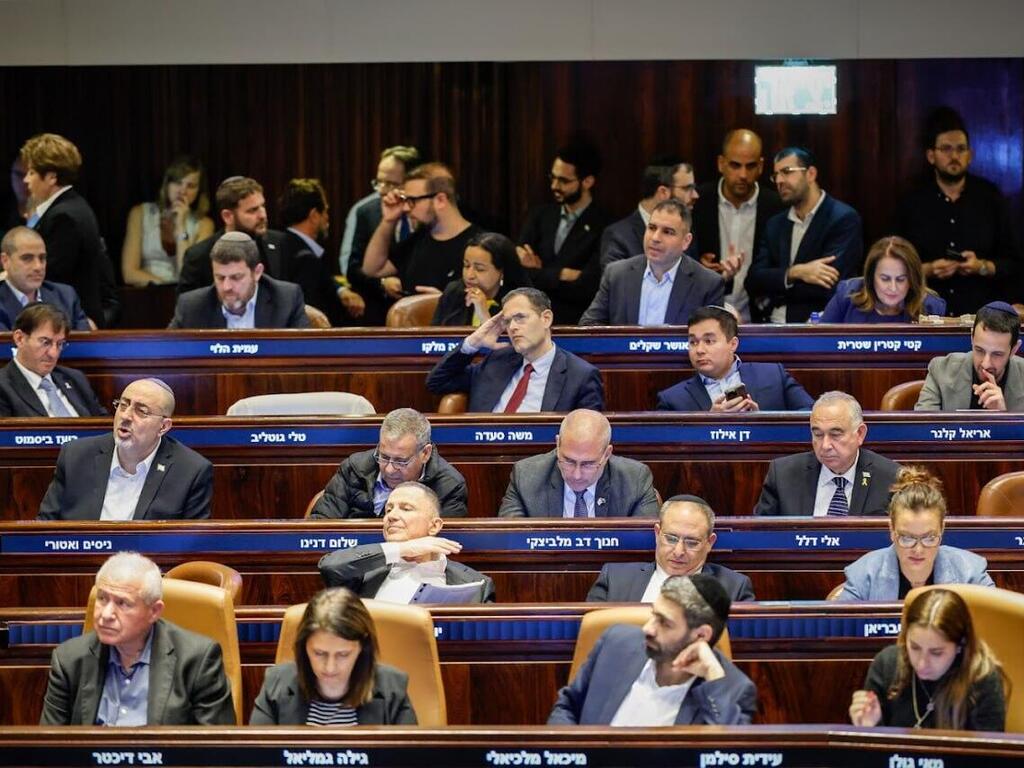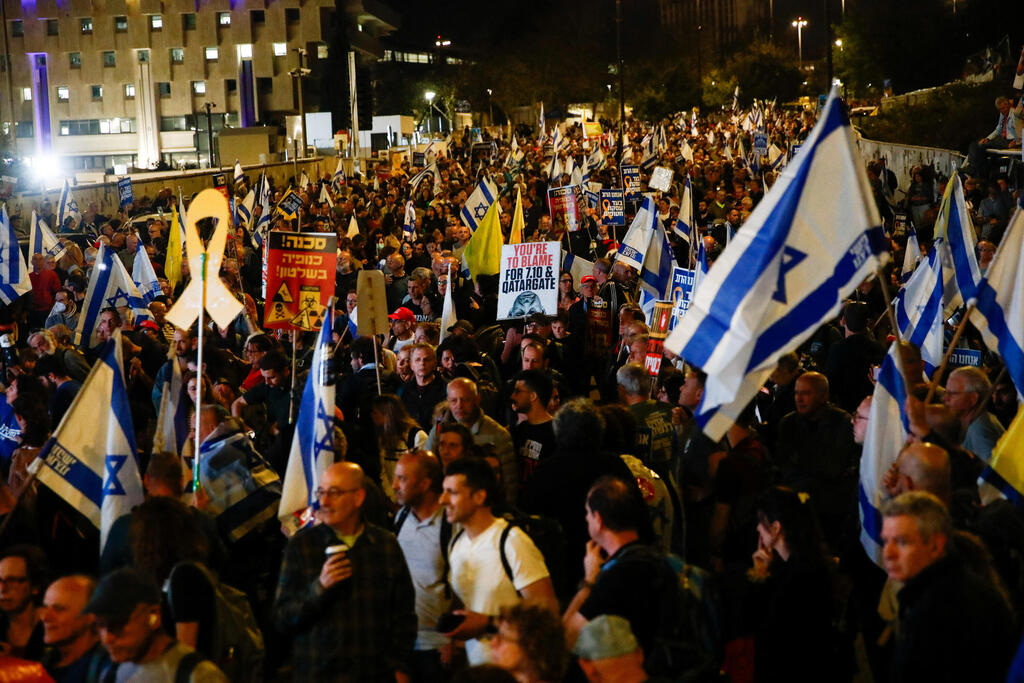Getting your Trinity Audio player ready...
The Knesset on Wednesday morning approved a contentious law to change the makeup of the committee that selects the country’s judges, a central component of Prime Minister Benjamin Netanyahu’s judicial reform plan that has drawn mass protests over the past two years.
The bill passed its third and final reading in the Knesset with 67 votes in favor and one against. The opposition boycotted the vote in protest. The sole opposing vote came from Mickey Levy, a lawmaker from the centrist Yesh Atid party, who later said he voted against the bill by mistake.
The vote followed an 18-hour debate that began at 12:30 p.m. Tuesday and concluded early Wednesday morning. The opposition attempted to disrupt the legislative process by withdrawing its list of speakers three hours ahead of the planned end of the debate. In response, Justice Minister Yariv Levin and coalition lawmaker Simcha Rothman prolonged their speeches until more coalition members could arrive for the vote, which took place at 6:15 a.m.
The law restructures the Judicial Selection Committee, reducing the influence of sitting judges and increasing political control over appointments. Under the new framework, the nine-member panel will include the president of the Supreme Court and two other justices chosen by their peers; the justice minister, who will chair the committee, and another minister selected by the government; two Knesset members, one from the coalition and one from the opposition; and two public representatives — attorneys with at least 10 years of experience — chosen by the coalition and opposition respectively.
The measure reflects a compromise plan drafted by Levin and fellow Cabinet minister Gideon Sa’ar.
Attorney General Gali Baharav-Miara has strongly opposed the legislation, warning that it undermines judicial independence. In a legal opinion, she said the law would erode the professional standards of judicial appointments and give political considerations undue influence, particularly in the selection of Supreme Court justices. She added that her office would not defend the law if it were challenged in the High Court of Justice on constitutional grounds.
Get the Ynetnews app on your smartphone: Google Play: https://bit.ly/4eJ37pE | Apple App Store: https://bit.ly/3ZL7iNv
The vote came amid ongoing public demonstrations against the judicial overhaul. On Tuesday, around 10,000 protesters gathered near government offices in Jerusalem. Convoys of vehicles arrived from across the country, and activists erected a mock "Qatar Embassy" exhibit in the capital, portraying Netanyahu as a puppet manipulated by Doha. The display referenced the so-called “Qatar-Gate” scandal, which has stirred political controversy in recent weeks.
The judicial overhaul, introduced by Netanyahu’s government in early 2023, has been one of the most divisive issues in Israeli politics, sparking nationwide protests and international concern over the future of Israel’s democratic institutions.



